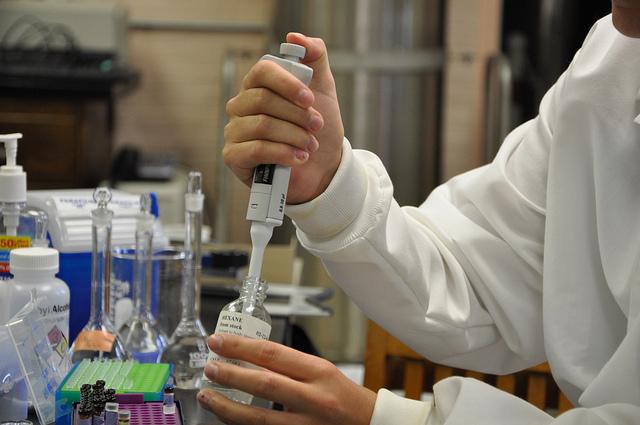History repeats itself. That’s why we study history — to learn from mistakes so we can do better going forward. But there’s a difference between a productive analysis of a mistake from the past, and unproductively obsessing over something that can’t be changed.
In 2014, the Department of Justice discovered nearly 7,000 untested sexual assault kits in law enforcement custody and hospitals around Wisconsin. In 2015, Wisconsin received federal funding to outsource to private labs to complete the testing, which began the following year.
On Sept. 10, Attorney General Brad Schimel announced the completion of the decades-old backlog of testing.
“We fixed a problem that had been created over the course of a quarter century in less than three years,” Schimel said.
But despite the success of the project, Schimel has received a lot of post hoc criticism about how long it took to complete the testing.
Attorney general announces first-of-its-kind campaign to reduce sexual assault kit backlog
“Brad Schimel’s incompetence has meant that justice has been delayed for survivors and that dangerous criminals have remained on the streets longer than they should have,” Schimel’s Democratic opponent, Josh Kaul, a former federal prosecutor, said.
Democratic Party of Wisconsin spokesperson Courtney Beyer offered similar comments and even went so far as to question Schimel’s political integrity.
“In the years it took Brad Schimel to simply do his job, survivors of sexual violence were denied justice and violent offenders were allowed to walk the streets of our communities,” she said. “Schimel doesn’t care one bit about keeping Wisconsin safe. What Brad Schimel does care about is getting re-elected so he can push the far-right agenda of his special interest backers.”
These tests, some of which dated back to the 1980s and 90s, needed to be completed, and Schimel certainly doesn’t deserve any sort of medal of honor for doing his job. And it’s true, it did take a while to finish those tests. Maybe Schimel should have employed more resources to finish the job, or maybe he should have done more to prioritize the job.
But does it really matter now?
What’s done is done — it took how long it took, and there’s no going back and changing things. Spending time criticizing the office for how long it took wastes valuable time that could be spent discussing what the next steps should be.
Great power, greater responsibility: The media’s role in reporting, combating rape culture
If we think it took too long, the response should be “How can we speed this process up going forward?” instead of completely negating the validity of the success by criticizing without suggesting any real solutions.
If we think the extended period of time led to jeopardization of the public and lack of justice for survivors, then the response should be, “How can we use this new information to bring justice and safety to survivors and the general public?” instead of just talking about how the public has been in danger, these many years.
If we are concerned about Schimel’s efficacy as a politician, then the response is to campaign for his opponent’s election — the solution is not to address his “far-right agenda” in a way that is neither relevant nor sensible.
As important as it is to critically examine past mistakes, dwelling on them without looking forward simply isn’t productive.
In 2014, the state of Ohio enacted a law requiring law enforcement agencies to submit all untested rape kits to a crime lab for testing within a year. By 2018, Ohio had eliminated their backlog. That law also included a new provision which requires, going forward, all rape kits must be submitted for testing within 30 days of collection, so as to prevent accumulation of backlog going forward.
Sexual assault test kits can give people freedom, more control over assault
In 2013, Colorado undertook the task of working through their backlog of tests, and as soon as each test was finished, the data was immediately uploaded into the CODIS database. Before they even finished all the testing, police made the first arrest to come as a result of the testing, and hundreds of profiles already had matches in the system.
In 2014, after nearly 1,500 untested rape kits were discovered in Atlanta, Georgia enacted a law requiring an annual audit of the number of untested rape kits in the state. The law also required that all previously untested kits be submitted for testing immediately. Georgia is still working through their backlog, but the numbers have been cut down by more than two-thirds.
The backlog of sexual assault test kits is a nationwide epidemic, and there is a long way to go before every state is caught up. But, even once the testing is completed, the work will not be. Many steps need to be taken to ensure this issue doesn’t resurface and to ensure the results from the testing are properly utilized going forward.
But those next steps are impossible if we waste time looking back. Let’s take a few moments to learn from our mistakes, and then let’s take the next steps forward.
Cait Gibbons ([email protected]) is a junior studying math and Chinese.














